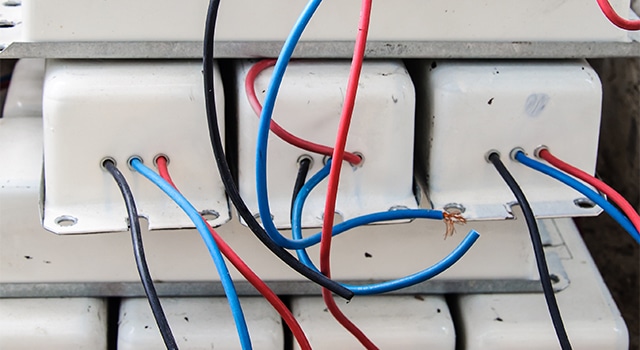As recently as five months ago, Volkswagen broadcast a series of commercials to promote the environmental cleanliness and fuel efficiency of its diesel engine vehicles. One commercial showed an elderly woman taking off her white scarf, holding it against the tailpipe and then lifting up the scarf up, showing it still bright white. It could have been an advertisement for Clorox.
Of course, as we all now know, Volkswagen knew at the time it aired those commercials that it was under investigation by the federal and California state governments. The investigation centered on Volkswagen including a device on its diesel cars that tricked regulators into believing that they meet government diesel emission standards.
Two weeks ago, the U.S. Environmental Protection Agency (EPA) announced that nearly 500,000 Volkswagen vehicles in the U.S. contain a “defeat device” — software designed to deliberately circumvent emission standards.
VW Diesel Cars Exceed Emission Standards
According to the EPA, the offending Volkswagen vehicles actually exceed state and federal emission standards under normal driving conditions by orders of magnitude — and sometimes as high as 40 times the permitted level.
Volkswagen subsequently revealed that 11 million cars and light commercial vehicles throughout the world (under several of its brand names) contain the same defeat device to disguise actual diesel emissions.
Volkswagen’s defeat device is a software algorithm. When the electronics system in vehicles equipped with the 2.0 litre Common Rail diesel engine (or 2 litre TDI® engine) senses that the vehicle is undergoing an inspection, the algorithm fully activates the vehicle’s emission control system.
VW Diesel Models Affected by Emissions Device
The software instructs the nitrogen oxides (NOx) trap to operate at full capacity, rather than allowing more pollutants to pass through it — which is what happens in reality when the car is being driven according to The New York Times. In other words, the device fools the government into believing that the vehicles are complying with the NOx emission standard — because that is what the software is designed to show.
In fact, the diesel engines during driving conditions operation do not have that level of NOx control and release a substantially higher level of pollutants.
The impacted VW and Audi vehicle and model years are
- 2009-2015 Jetta
- 2009-2014 Jetta SportWagen
- 2012-2015 Beetle
- 2012-2015 Beetle Convertible
- 2010-2015 Audi A3
- 2010-2015 Golf
- 2015 Golf SportWagen
- 2012-2015 Passat
CNBC states that according to the EPA, a recall of the affected diesel models is likely to take place.
Diesel Prices Makes Cars More Expensive
Volkswagen has issued a mea culpa and figuratively fallen on its corporate sword. Volkswagen Group of America CEO Michael Horn stated, “Let’s be clear about this: Our company was dishonest with the EPA and the California Air Resources Board and with all of you.”
The “you” are the half million purchasers of these vehicles who were duped by Volkswagen into believing they were buying a diesel car that promised better fuel efficiency and the highest emission standards.
Volkswagen Supervisory Board member Olaf Lies has even publicly stated that the installation of the software amounts to a crime, “Those people who allowed this to happen or who made the decision to install this software – they acted criminally.”
Both the CEO of Volkswagen A.G. and the company’s sales chief have resigned and it is reported that Volkswagen has suspended half a dozen engineers. Volkswagen continues to be very careful in its public statements.
However, none of Volkswagen’s statements address the real-life issue: owners of these vehicles are now driving vehicles with impermissibly high emissions from their engines. The statements also do not absolve Volkswagen of its egregious acts and the mammoth fraud it has perpetuated on consumers.
Volkswagen touted these engines as superior to an engine that runs on conventional gasoline, and a consumer who bought the diesel version paid several thousand dollars more for the vehicle.
Consumers opted to pay more for a vehicle which, as advertised and promoted, offered a cleaner and more fuel efficient engine.
Also, diesel fuel is more expensive at the pump than conventional gasoline. Consumers who purchased the diesel engines also accepted the future obligation of paying 20 to 40 cents per gallon more (and in some parts of the country the differential is even larger).
They chose diesel over gasoline because they believed they would recoup the costs over time due to its better fuel efficiency, while at the same time aiding the environment.
Volkswagen vehicle owners, justifiably, are outraged and angered that they now own vehicles that offer none of the promises made by the company and now have little to no market value.
These diesel vehicles have a direct impact on the environment. Researchers estimate that Volkswagen’s cars have contributed approximately 46,000 tons of added pollutants into the air we breathe since 2008.
NOx is the primary emission spewing from these cars and is linked to respiratory and cardiovascular illnesses, as well as premature deaths. Early estimates, founded on past modeling, suggest that the increase of NOx emissions from these eight models has contributed to the deaths of 50 to 100 people according to The New York Times article on Volkswagen deception.
VW Needs to Fix the Emissions Recall Problem
Volkswagen, in all likelihood, will require a significant amount of time to correct the impact of its defeat device. The company has just announced its initial recall plan for vehicles sold in Europe, but that plan excludes cars owned in the U.S.
It is believed that the higher U.S. emission standards will require substantial engineering changes. While simply removing the defeat devise (i.e., rewriting the program without the algorithm) should permit most vehicles to meet emissions standards in the short term, this approach will dramatically impact the engines’ fuel efficiency and, potentially, could adversely impact the system’s performance.
In other words, removing the defeat device might result in fuel efficiency being greatly reduced, leaving Volkswagen owners with a vehicle that requires them to pay a premium at the pump without any attendant fuel efficiency benefit, and the cost of operating these vehicles could increase every time is they are used.
If Volkswagen needs to add a physical part to the vehicles’ system, it may take many months — if not years — to design, test, manufacture and install the necessary fix to the nearly 500,000 impacted U.S. cars.
Weitz & Luxenberg is seeking to assist owners of these Volkswagen (and Audi) diesel models. If you have any questions concerning these cars or how the defeat device within the car may impact an upcoming state inspection of your vehicle, please feel free to contact us.
 William A. Walsh
William A. Walsh 

